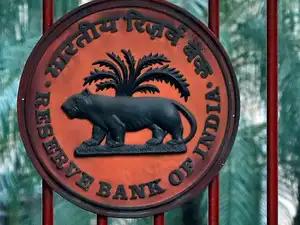
Digital Banking Now Fully Optional for Customers
a major shift, the RBI’s draft Digital Banking Channels Authorisation Directions, 2025, announced on July 21–22, 2025, makes digital banking services—such as internet banking, mobile apps, debit cards, and loans—fully optional. Customers who prefer traditional channels (like branches or ATMs) can continue without any compulsion to enroll in digital-only services. This move recognizes diverse customer preferences and addresses concerns about excluding those who find digital systems challenging or unreliable.
Ban on Promoting Third‑Party Products Without RBI Approval
The draft prohibits banks from pushing third-party financial products (including those offered by affiliates or subsidiaries) on their digital platforms without explicit RBI authorization. This step aims to reduce cross-selling pressure and conflict of interest, ensuring customers see only RBI‑approved offers. Banks will no longer be able to promote insurance, mutual funds, or other products unless they meet prudential standards
Explicit Consent & Risk‑Based Screening for Transactions
A key protection: banks must acquire explicit customer consent before enabling any new digital banking service. Alongside, they must run risk-based checks on customer transactions to detect anomalies. The intent is to clamp down on unauthorized or fraudulent activity and empower customers with full visibility during digital enrollment
Introducing ‘View‑Only’ vs. ‘Full‑Transaction’ Modes
To reduce accidental or unintended transactions, the draft mandates a clear distinction between “view‑only” (balance and statement checks) and “full‑transaction” modes (payments, transfers, etc.). Users must explicitly choose their mode of access, enhancing control over action permissions and reducing risk
Stronger Fraud Surveillance & Real‑Time Monitoring
The RBI wants banks to deploy continuous, risk-based surveillance systems that monitor transaction patterns and generate early warning alerts, or even block transactions if suspicious behavior is detected. This aligns with the development of broader systems like the Digital Payment Intelligence Platform (DPIP), where banks and RBI Innovation Hub collaborate for real-time anti-fraud data-sharing
Consultation Open Till August 11, 2025
The RBI is inviting public feedback on this draft—spanning all digital-banking norms—until August 11, 2025. After that, it will finalize the guidelines. Stakeholders—including banks, fintechs, consumer advocates, and the public—can review and share comments on aspects like customer consent, fraud-detection systems, or third-party restrictions.

🔹RBI to Tighten UPI Security Measures
The Reserve Bank of India is planning to introduce stricter security checks for UPI transactions, including mandatory real-time authentication to prevent digital payment frauds. Banks and third-party apps will be required to implement stronger user verification protocols.
🔹Separate Digital Bank License Model Under Review
RBI is evaluating the possibility of introducing a new licensing framework specifically for fully-digital banks. These banks would operate without physical branches and offer all services through digital platforms only.
🔹Customer Liability Rules Revised for Online Fraud
The RBI is revising guidelines around customer liability in fraud cases. Under the new draft, if the fraud occurs without customer fault, the bank or payment provider will be held responsible for reimbursing the amount.
🔹 Focus on Data Privacy and Consent
The draft also emphasizes strict data privacy rules, ensuring that banks and fintech firms must obtain clear customer consent before sharing any financial data with third parties.
🔹 RBI to Monitor AI Use in Digital Lending
RBI has expressed concern about the unchecked use of AI algorithms in digital lending apps. It plans to issue new standards to ensure that AI is used responsibly, with transparency and fairness.

